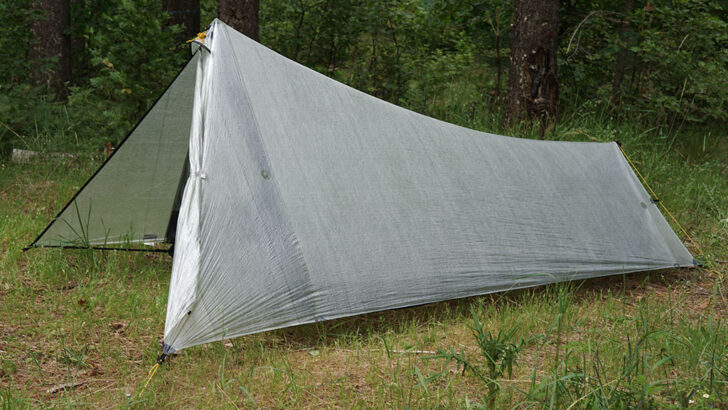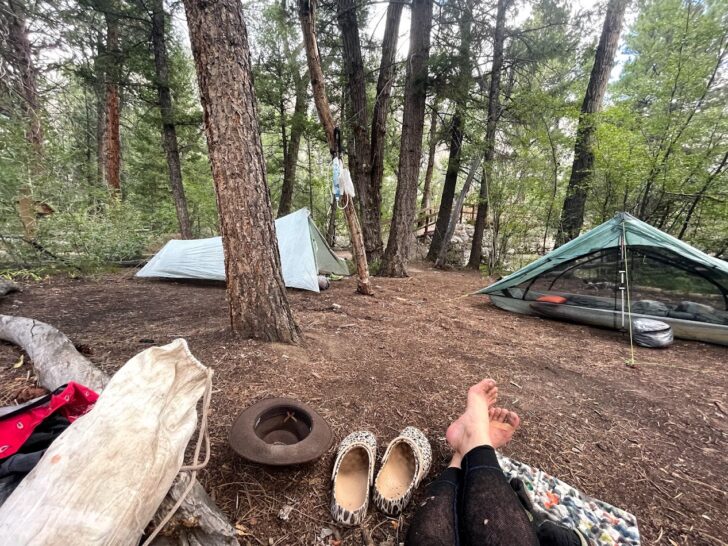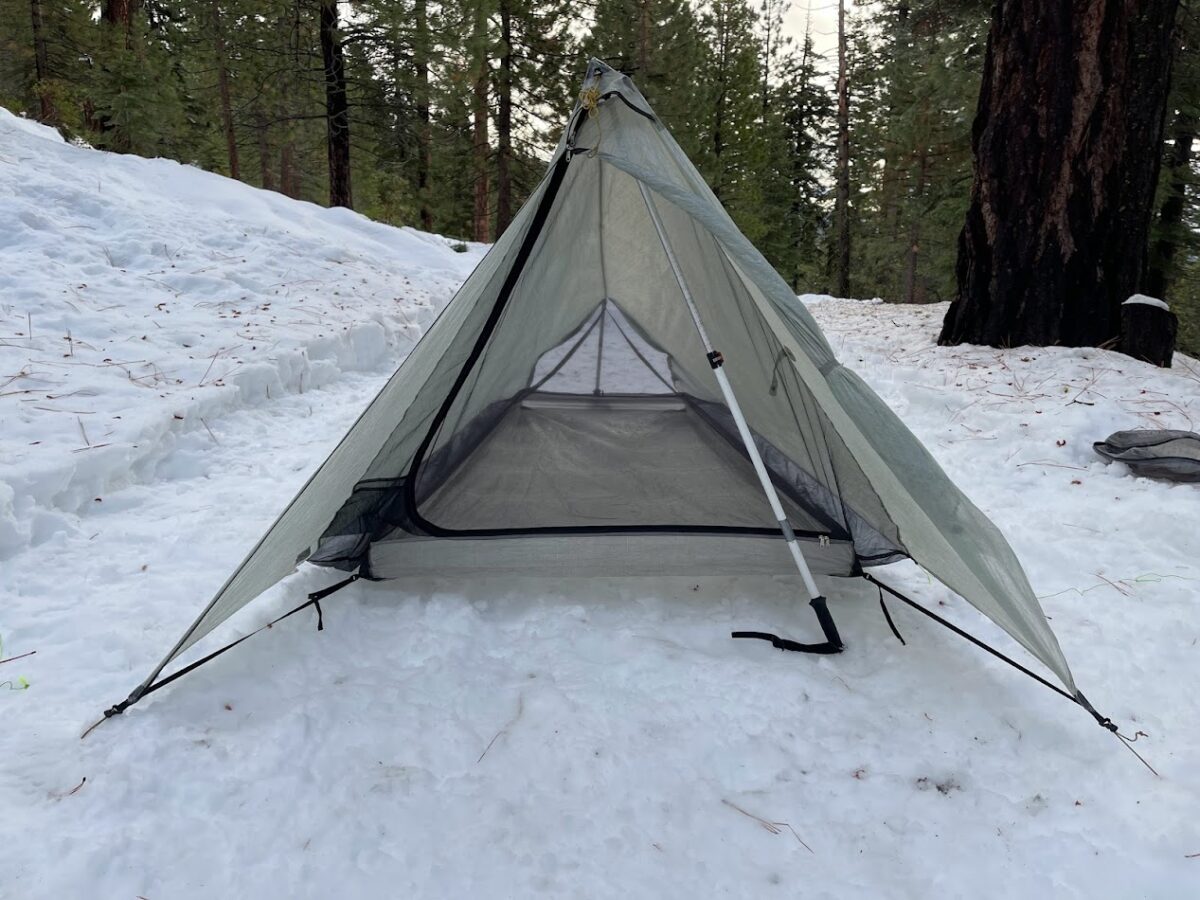Introduction
The Tarptent ProTrail Li (17.7 ounces / 502 g, from $529) is a single-wall, double trekking-pole, single-vestibule, front-entry Dyneema Composite Fabric (DCF) 1-person shelter. It is Tarptent’s lightest and least expensive DCF shelter.

About This Review
This Limited Review is based on my experience with the Tarptent ProTrail Li on multi-day backpacking trips in 2020 and 2021. I spent over forty nights in the ProTrail Li in a variety of weather and seasons in the southern Appalachians, the Sierra Nevada, and the southern Rockies.

It’s also worth noting that I have over 150 nights in one of the ProTrail Li’s spiritual successors, the Tarptent Contrail (2012 version) – you can read our review of the original Contrail here.
Read about the differences between Performance and Limited reviews here.
Features and Specifications
- weights (claimed): body – 15.95 oz / 453 g, stuff sack – 0.5 oz / 14 g, included stakes (4) – 1.25 ounces (44 g)
- weights (measured) – 17.0 oz / 482 g, stuff sack – 0.5 oz / 14 g, included stakes (4) – 1.1 ounces (31 g)
- poles: 2 trekking poles, 107 – 120 centimeter ( 42 – 48 in) length, or 5.1 oz (144 g) optional straight pole set provided by manufacturer
- interior height (adjustable): 45 inches (114 cm)
- floor width: head – 42 inches (107 cm), foot – 30 inches (76 cm)
- floor area: 21 sq ft ( 1.95 sq m)
- packed size: 14 x 4 in (35 x 10 cm)
- guyline: 2.5 mm reflective
- stakes: four 4 x 6 in (15 cm) Easton Nanos (included)
- floor material: 1.0 oz/yd2 DCF
- fly material: 0.51 oz/yd2 DCF
- 2-way waterproof YKK zippers
- sleeps one
- front entry
- intended for three-season use
- five perimeter hem pullouts
- magnetic tiebacks for door panels
- closeable rear ventilation panel
- single mesh pocket at head
- minimum-four stake setup
- catenary curve ridgeline
Description of Field Experience
I spread my 40 nights of field experience with the Tarptent ProTrail Li between the southern Appalachians (a seven-night loop in The Great Smoky Mountains National Park), southern Rockies (an 11-night loop around the Collegiate Peaks Wilderness), and the Sierra Nevada (a four-night speed-hike of the Tahoe Rim Trail, and various one, two, and three-night trips in and around the Tahoe basin).

My trips encompassed all seasons and a variety of weather types – from light snow to pounding, multi-hour rainstorms to dry, cold, moderate winds to warm swamp-like humidity. My maximum overnight low temperature was 10 °F (-12 °C) and my maximum overnight high was 65 °F (21 °C). Campsites were just as varied, with about half occurring in dry, sheltered locations and half occurring above treeline or in moist, cold-sink-ish locations (nearly unavoidable in the Smokies).
I packed the Tarptent ProTrail Li in a 28 L frameless pack, a 40 L frameless pack, a 50 L frameless pack, and a 60 L internal framed pack with aluminum stays. My primary sleeping pads during testing were the NEMO Switchback (a regular-sized CCF pad) and NEMO Tensor (rectangular, wide, inflatable).
I’m 5 feet 6 inches (168 cm) and athletically built. That’s certainly on the shorter side for adult males, and does color the way I interpret shelter livability, though I make an effort to take taller users into account when drawing my conclusions.
Member Exclusive
A Premium or Unlimited Membership* is required to view the rest of this article.
* A Basic Membership is required to view Member Q&A events




Home › Forums › Tarptent ProTrail Li Review